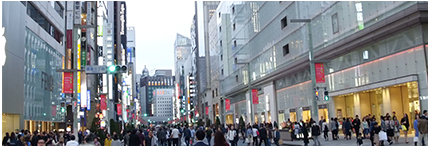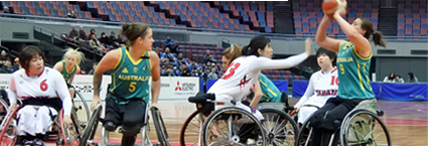Towards the 2020 Tokyo Olympic Games: From Physical Education to Sport BY MASAYUKI TAMAKI
Masayuki Tamaki was born in 1952. He is a sports commentator. He is a visiting professor of the Toin University of Yokohama, the Shizuoka University of Art and Culture, and the Ishinomaki Senshu University. He is also a Graduate School contract lecturer at Rikkyo University. He lectures at Tsukuba University as well. He published a number of books including “Supootsu to wa Nani Ka”(Kodansha Ltd.) (What is Sport?) and “Supootsu Kaitai Shinsho”(NHK Publishing Co., Ltd.) (A New Book on Sport Deconstruction)
HP: http://www.tamakimasayuki.com/
September 11, 2013
Tokyo has been selected to host the 2020 Olympic and Paralympic Games. I salute this brilliant achievement from the bottom of my heart.
The outcome of the vote by IOC members belied all projections, and Madrid which was seen as the favorite candidate that would closely compete with Tokyo was quickly eliminated.
The fact that Paris was reluctant to the selection of its neighbor (Madrid) for the preceding Games because it intends to apply for the 2024 Olympiads and the Tokyo’s successful lobbying strategy explain these results.
According to sources from a French sport agency, Mr. Shimomura, Minister of Education, Culture, Sports, Science and Technology headed to Paris before the vote and arranged that France and the IOC members with whom it has a lot of clout vote for Tokyo, in return for the support of Japan to Paris for the 2024 Games.
There is also information according to which, under the aegis of the Liberal Democratic Party’s Headquarters for the promotion of the Olympic candidacy (Secretary General = Hiroshi Hase), diplomatic efforts to persuade North Korea (Inoki Antonio) and China (Kentaro Sonoura) bore fruit. It is certain that all these combined efforts showing an effective teamwork have worked well.
Furthermore, it is said that the German Thomas Bach who was a candidate for the next presidency of the International Olympic Organization at the time of the vote and who was attempting to promote his country (Munich or Garmisch Partenkirchen)’s candidacy for the 2022 Winter Olympics was equally reluctant to neighboring Madrid’s selection as the host city for the 2020 Olympic Games.
In the midst of all these speculations, the Spanish quality paper, “El Mundo” reported before the vote with photographs and names of IOC members that “Madrid has already secured the majority of 51 ballots!” It seems that most of members felt discomforted and avoided voting for Madrid (As a precedent, Switzerland’s Sion was the big favorite of the Winter Olympiads, but since it held a victory celebration before the election day, IOC members were angered and switched their vote to Italy’s Torino).
Furthermore, so far Madrid has enjoyed high popularity, but just before the vote her projected ballots have suddenly stagnated. Because of that, Madrid relentlessly engaged in aggressive lobbying activities. It is said that this “way of doing” drove IOC members to turn Madrid down(In fact, it has been reported that such “conduct”(gifts?) was reproved by the International Olympic Committee, but some people say that this time’s Olympic bid has seen candidate cities utilize “hard cash”).
Eventually, Turkey’s Istanbul had to compete with Tokyo in the final election, but its last presentation was rather poor to say the least, and even trivial to some extent. On top of that, the quagmire of the civil war in the neighboring Syria worsened things.
Also, the presently reported delay in the construction work for the Games of Rio de Janeiro (Brazil), the next Olympic Games host city (which is also going to hold the Soccer World Cup) and the reluctance toward the instability in emergent nations turned out to be favorable to Tokyo.
On the other hand, Tokyo won IOC members’ hearts through an appealing final presentation with, in the first place, the moving speech delivered by the Paralympian Mami Sato who regained her confidence thanks to sport after losing her leg from a disease. The outcome was a large victory by 60 to 36.
It’s true that Tokyo benefited from its “opponents mistakes” and the “international situation”, but activities conducted for the promotion of the candidacy including presentations and the lobbying were carefully prepared and planned that they brought about the best results (There are also observers who highly appraise the competency of the British consulting company with which Tokyo signed a contract after the victory of Rio de Janeiro).
Now the whole Japanese society has set the stage for improvement towards the extraordinary event that is going to take place in 7 years. Such an atmosphere in itself has but to be acknowledged as wonderful.
The urban infrastructure put into place in Tokyo at the 1964 Olympic Games is everywhere dated half a century later, and large-scale repairs are necessary. Tokyo is definitely going to metamorphose into a totally new city. Far bigger than the opening of the Shinkansen in 1964, the expression “economic effects” doesn’t fit to represent the invaluable significance that is going to ensure the installation of the expressway underground system, the construction of a third airport, the 24-hour buses and trains operation, the greening of the entire city, and the creation of a thorough barrier-free urban environment.
And Sport will be at the centre of all these changes!
For the 1964 Olympics, as the breeding of medalists was a priority, some of the athletes were sent to Self-Defense Training Schools and College Sport Gymnasiums. Sport was not expanded to ordinary people and the majority of the population didn’t have the opportunity to experience the joys that can be gained from sport.
Thanks to the Olympic Games, physical performance tests have been introduced, but grenade hurling was replaced by softball throwing and the former Japanese military pull-up exercises, back-hip circle, and vaulting horse were reintroduced. Then on, the number of Olympic medalists has plummeted year after year.
Recently, however, outstanding sports such as swimming, gymnastics, and soccer have not seen their growth at the school gymnasiums, but in private sport clubs.
Amidst such an environment, scandals related with punishment lingering within the ancient order of physical education sport clubs came to light. The 2020 Tokyo Olympic victory came at the time when measures were being introduced for the banishment of punishment.
This denotes the entrance into a new era. The time has come when everybody is supposed to freely enjoy sport instead of the school physical education order of vertical relationship. From such a “wide opening” will surge a “high pinnacle”. This is definitely the “new shape sport” is going to take thanks to the 2020 Tokyo Olympics.
With its gigantic shopping malls where sport goods will be sold and its sport game attractions, the rebuilt new National Stadium will metamorphose into a facility totally different from the traditional “gymnasium” by hosting the World’s top sport events. With its popular sport amusement parks, it will be nothing less than Disneyland.
With the 2020 Tokyo Olympics and Paralympics, a turning point will unquestionably see change from physical education to sport in all fields.
The question is, however, if the Olympics will or not succeed to bring about change with this new era. Everything hinges on the good or ill management of the Fukushima crisis (as the Prime Minister “publicly pledged” at the IOC ordinary session). The preparation for an eventual large-scale quake is also to be mentioned….
True, the Tokyo Olympic victory has brought along a mountain of work Japan has to accomplish. But, odds and hardships can be overcome. Why? It is because the Games will take place in 7 years. After all, our fathers have made them possible half a century ago…
(Delivered by Kyodo News in collaboration with NBS Original)
(Photograph by Photo Kishimoto)
(Translated from Japanese by Willy Lukebana Toko)







